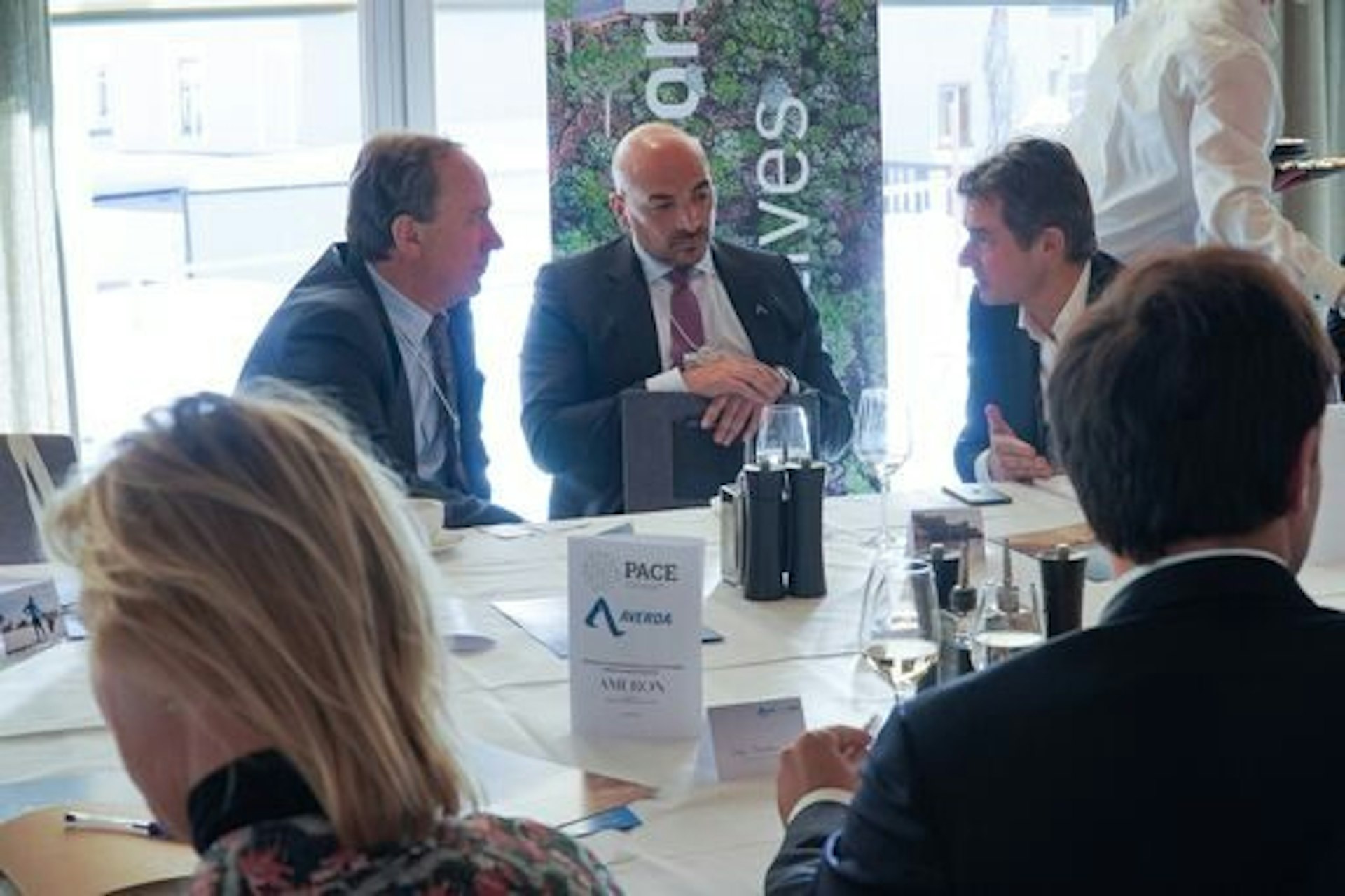Davos: Averda hosted a lunch summit together with the Platform for Accelerating the Circular Economy (“PACE”), at the World Economic Forum in Davos last week. The purpose of the summit was to explore ways of building a circular economy in the world’s developing nations.
PACE is a global public-private collaboration platform for global leaders and their organisations to accelerate the transition to a circular economy. It was initiated by leaders in the World Economic Forum and is currently hosted by the World Resources Institute. PACE provides leaders with the connections, learning, and opportunities to pilot and rapidly scale best practices that drive the transition to a circular economy.
The lunch brought together leaders from the public and private sectors for a roundtable discussion to identify practical, meaningful steps which can be taken by countries in the emerging world facing the unique challenge of responding to climate change and pollution against a backdrop of rapid economic transformation.
Averda were delighted to hear thoughtful and constructive contributions from the high profile attendees which included multinational CEOs, government ministers and heads of national and international NGOs. Malek Sukkar, CEO of Averda, spoke about the importance of introducing laws and regulations around sustainable waste management and finding new ways of encouraging international investment in waste infrastructure. Alongside Malek, David McGinty, Global Director of PACE addressed the delegates as well as Martin Stuchtey, Co-founder & Managing Partner of Systemiq.
The following topics were discussed;
- The main barriers to an emerging world circular economy:
- Cost
- The need for effective public and private collaboration
- Government-level regulation for the correct disposal and recycling of waste
- Consumer desire / willingness to change behaviours around use and re-use of materials
- The progress of existing circular economy initiatives:
- The informal economy
- Youth movements
- Legislative awareness
- New ways of supporting a circular economy in the emerging world:
- It was agreed that Averda will head a partnership with some of the organisations in the room to create a demonstration project which showcases the benefits of adopting circularity in waste management. Further details including project location will be announced in due course.
Malek Sukkar, CEO of Averda commented
“If we keep doing what we have always done we will continue to get what we have today; a situation in the emerging world in which waste is piling up and becoming a significant health and environmental crisis. It is time for change. Rather than call on others for a solution, we have decided to take action by building our own circular waste project in an emerging market. We look forward to working with PACE and the other partners at our summit to move this forward in the near term.”
David McGinty, Director of Pace:
“We were delighted to co-host yesterday’s lunch summit with Averda and were strongly encouraged by the desire of all participants to take action. There is a huge opportunity in the emerging world to leapfrog the mistakes made by the West and adopt a fully circular sustainable economy in which the use of virgin materials is minimised and valuable resources are reused to the full. We are looking forward to working with Averda and our other partners to move forward.”
Martin Stuchtey, Co-Founder and Managing Partner of SYSTEMIQ:
“Achieving a circular economy requires a rewiring of today’s industrial economy. Especially, producers must maintain ownership over their life-cycle, consider the post-use phase as part of their value chain and help build the recovery systems we currently so conspicuously lack. These full-cycle brands would provide funding, circular product designs and business models that add up to a fully circular economy. In our initiatives at SYSTEMIQ we are developing test cases for such a circular system, all the way down to the beaches of Indonesia. What we find is that building zero-waste systems requires substantial operational knowhow and the ability to bring together value chain actors in new ways. This is what AVERDA and PACE respectively contribute in their own distinctive fashion.”



